J-1 exchange visitors and J-2 derivatives subject to the two-year foreign residence requirement of the Immigration and Nationality Act, Section 212(e), also referred to as INA § 212(e), are subject to several legal disabilities until they fulfill the requirement or obtain a waiver. These legal disabilities prevent exchange visitors and their J-2 dependents from applying for H or L visa stamps, permanent resident status, an immigrant visa, and change of status (except A or G for non-physicians, see INA § 248(a)), significantly impacting them and their families.
In addition to I-612 exceptional hardship and persecution waivers, our firm also handles J-2 visa waivers, Interested Government Agency (IGA) waivers, and No Objection (NO) waivers. In this blog post, we will delve into the intricacies of these types of J visa waivers, including eligibility criteria, the application process, and the benefits of seeking legal assistance.
Short Summary
- It is important to understand the J-2, IGA, and NO waiver eligibility criteria and processes.
- In all cases, applicants have the burden of proving eligibility for a waiver of the J-1 foreign residence requirement and must demonstrate by a preponderance of the evidence that they are fully qualified for the waiver.
- All processes require filing Form DS–3035 with the U.S. Department of State Waiver Review Division (DOS-WRD) with the appropriate supporting documentation.
- Legal assistance from an experienced immigration attorney can be invaluable in helping exchange visitors successfully navigate the complexities of these types of J visa waivers .
The J2 Visa Waiver

All J-2 visa holders are independently subject to the two-year foreign residence requirement, but they cannot independently apply for most traditional waivers. Typically, if a J-1 exchange visitor receives a waiver, the J-2 derivative also receives a waiver. However, sometimes family circumstances create situations in which the J-2 derivative needs a waiver but the J-1 exchange visitor never fulfilled the two year residency requirement and/or never sought or received a waiver.
J-2 exchange visitors can request that the State Department act as an interested government agency to waive the requirement in three limited circumstances: divorce between J-1 and J-2 spouses; the death of a J-1 spouse or parent if the child is over 21 years of age; or when J-2 children reach the age of 21.
The J2 Waiver process
J-2s must file Form DS-3035 and copies of the J-1’s DS-2019/IAP-66 forms with the U.S. Department of State. Depending on the circumstances under which one is filing, a valid death certificate, valid divorce decree, or valid birth certificate is also required to adequately prove relationship or dissolution of that relationship.
In addition, the J-2 waiver applicant will also need to explain why he or she is applying for the J-2 waiver without the J-1 person and the reasons why he or she believes the requested waiver should be granted.
The Interested Government Agency (IGA) Waiver
An IGA can be any U.S. federal government agency that is willing to show that the exchange visitor’s departure would be detrimental to a program or activity of interest to that agency. For physicians, an IGA may be a state department of health under the Conrad 30 program.
The applicant need not be a current or prospective employee of the agency but must apply directly to the federal or state agency, following the procedures used by that agency. The State Department will only act upon the request of an IGA.
The IGA Process
An IGA waiver application must: Identify the program sponsor by name and number; provide the WRD case number, generated by the online submission of Form DS-3035; name the applicant’s place of intended residence in the United States; and state the reason(s) for the waiver request.
The applicant must also: (1) establish a nexus between the IGA and the intended employment of the applicant; (2) show that granting the waiver would serve the public interest; and (3) explain how the case merits a favorable decision.
Non-Physician IGA Process
There are many interested government agencies willing to submit J-1 waiver requests. The first step is for the non-physician exchange visitor to identify government agencies that are associated with or have an interest in their continued presence.
This includes government agencies that (1) fund research the exchange visitor is involved with; (2) are interested in or involved with developing a critical technology the exchange visitor is working on; or (3) seek involvement in an endeavor of interest to the agency. These agenices include: National Science Foundation; U.S. Department of Transportation; U.S. Department of Energy; U.S. Department of Agriculture; Department of Health and Human Services (researcher cases); Department of Defense; National Aeronautics and Space Administratrion.
Physician IGA Process
J-1 physicians willing to work in a medically underserved area may apply for J-1 waivers through a state health department, under the Conrad 30 program, or through a federal agency with a physician waiver program.
The six federal physician IGA programs are: the Department of Health and Human Services (research and clinical); the Department of Veterans Affairs; the Appalachian Regional Commission; the Delta Regional Authority; the Southeast Crescent Regional Commission; and the Northern Border Regional Commission.
The physician must first find an IGA willing to recommend a waiver based on the physician’s commitment to work in a medically underserved area. The Department of Health and Human Services designates underserved areas as either Health Professional Shortage Areas (HPSAs) or Medically Underserved Areas (MUAs).
The Conrad 30 program
As specified in section 214(l)(1)(B) of the Immigration and Nationality Act, also referred to as INA § 214(l)(1)(B), each state has 30 waiver slots.
The state’s department of public health must submit the waiver application on behalf of the physician. The application must meet the requirements of 22 C.F.R. § 41.63(e), the two-year foreign residence requirement as detailed in the Code of Federal Regulations.
Physician IGA Restrictions
Section 214(l)(1)(A) of the Immigration and Nationality Act, also referred to as INA § 214(l)(1)(A), requires a physician that is contractually obligated to return to his or her home country to include a no objection statement from that country with the IGA application.
Once approved, the physician must complete the three-year obligation in H-1B status.
For a physician, the grant of an I-612 hardship or persecution waiver is more valuable than an IGA waiver because the physician can compete for jobs anywhere in the United States and need not work in a medically underserved area for any length of time.
IGA Restrictions
J-1 physicians can only apply for one IGA based on a term of service; however, they can file an IGA concurrent with a hardship and/or persecution waiver or both. However, he U.S. State Department has an unwritten policy that it will not adjudicate another waiver request after it has already issued a favorable recommendation.
For example, if a physician is granted an IGA waiver, the State Department will decline to adjudicate a subsequent hardship or persecution waiver application. Since there is no basis in the statute or regulations for this policy, it is ripe for litigation.
The No Objection (NO) Waiver
For non-physicians, a no objection waiver is the cheapest, quickest, and easiest way to obtain a waiver. The disadvantage is that some countries will not issue a no objection statement.
The home country will transmit no objection statements to WRD through diplomatic channels; however, each country has its own requirements for issuance and some will not issue a no objection statement. The two-year foreign residence requirement can only be waived if the exchange visitor’s home country issues a no objection statement.
No objection waivers are good options for individuals who are subject based on the skills list or purely foreign government funding. Physicians sponsored by the Educational Commission for Foreign Medical Graduates participating in graduate medical education are statutorily ineligible for this kind of waiver.
Additionally, no objection waivers usually won’t overcome the special problems associated with U.S. government funding, although these sometimes can be won.Note there are benign U.S. government funding agencies, such as the U.S. Department of Agriculture (USDA), Oak Ridge Institute for Science and Education (ORISE), National Aeronautics and Space Administration (NASA), and Smithsonian. The National Institute’s of Health (NIH) requires applicants meet NIH requirements for issuance of favorable sponsor views.
Benefits of Hiring an Immigration Attorney
Seeking legal assistance for the J-2, IGA, or NO waiver processes is highly recommended, as an experienced immigration attorney can provide expert guidance and help gather the necessary evidence to support the appropriate J-1 waiver application unique to the situation.
Hiring an immigration attorney can significantly improve the chances of obtaining an INA § 212(e) waiver. An experienced attorney can help navigate the complex waiver process and ensure that all required documents are submitted accurately and in a timely manner by offering specialized advice and help compiling appropriate evidence and managing the application process to your benefit.
Additionally, an attorney can offer counsel on the best course of action if the waiver is excessively delayed, USCIS issues a Request for Evidence, or if the application is denied, guiding you through the options suitable to your unique situation.
Summary
In conclusion, the J-2 visa, IGA, and NO waivers can provide relief to J-1 visa holders and their J-2 dependents, helping them avoid being compelled to fulfill the two-year foreign residence requirement. Understanding the intricacies of INA § 212(e) and the various waiver eligibility criteria and their application processes is crucial in navigating this complex area of immigration law.
If you are a J-1 or J-2 visa holder in need of a J-2, IGA, or NO waiver, seeking legal assistance from our experienced team can significantly improve your chances of success. By understanding the waiver process and gathering the necessary evidence, you can overcome the challenges and open doors to a brighter future for you and your family.
Frequently Asked Questions
Can a J-2 apply for a waiver?
In most situations, J-2s automatically receive a waiver when the J-1 applicant receives a waiver. However, a J-2 visa holder can apply for a waiver in certain cases when the J-1 sponsor has not fulfilled the two-year foreign residence requirement or received a waiver but is no longer married to the J-2 dependent through divorce or death or a J-2 dependent child has reached the age of 21.
What is an IGA waiver?
IGA stands for interested government agency. An IGA can be any U.S. government agency that is willing to show that the exchange visitor’s departure would be detrimental to a program or activity of interest to that agency. For physicians, an IGA may be a state department of health.
Exchange visitors can only apply for one IGA; however, they can file an IGA concurrent with a hardship and/or persecution waiver or both.
What is the cheapest and fastest wavier?
For non-physicians, a no objection waiver is the cheapest and fastest way to obtain a waiver. The disadvantage is that some countries will not issue a no objection statement. NO waivers are good options for individuals who are subject based on the skills list or purely foreign government funding. Physicians sponsored by the Educational Commission for Foreign Medical Graduates participating in graduate medical education are statutorily ineligible for this kind of waiver.
